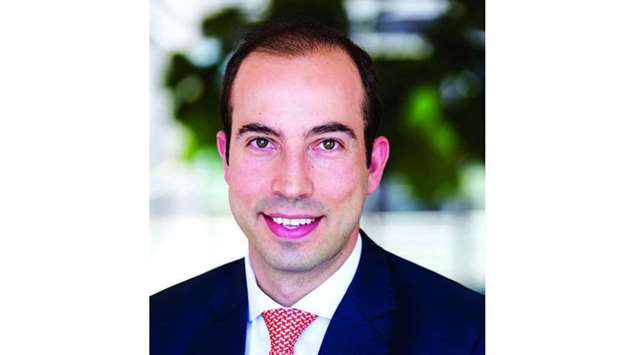Qatar’s financial wealth grew by a compound annual growth rate (CAGR) of 3.6% to $263bn during 2015-20 and is expected to grow 3.1% CAGR to $306bn by 2025, indicating the Gulf country's resilience amidst the protracted Covid-19 pandemic, according to Boston Consulting Group (BCG).
Of the $263bn, which represented 12% of the Gulf Co-operation Council’s (GCC) financial wealth in 2020, the BCG report ‘Global Wealth 2021: When Clients Take the Lead’, found that 76% of it is in investable nature.
Financial assets consist of cash and deposits; bonds, equities, and investment fund shares; life insurance and pensions; and other small asset classes.
The onshore asset allocation shows that equities and investment funds (51%) accounted for the largest proportion of assets in 2020.
"Looking ahead, the allocation of onshore assets is expected to be similar by 2025, where equities and investment funds amounting to 53%, the largest share of onshore allocation in Qatar," it said.
“Examining the growth of Qatar’s wealth in recent years, it has certainly been strong, despite the economic turbulence stemming from the pandemic," said Harold Haddad, Managing Director and Partner at BCG.
The heightened economic productivity has transpired as per the Qatar National Vision 2030, encouraging Qatari nationals to engage in a global economic landscape, which is a key factor behind the country’s growth in wealth during a period of unprecedented difficulty, he said.
BCG’s report also shows Qatar’s changing landscape of the wealthy in the coming years, with the rise of the next-generation affluent and high-net-worth clients. These individuals, between 20 and 50 years of age, have longer investment horizons, a greater appetite for risk, and often a desire to use their wealth to create positive societal impact as well as earn solid returns. Many wealth managers are not yet ready to serve these new clients.
“Qatar’s wealthy population has expanded due to notable economic accomplishments, with more citizens becoming acquainted with more wealth. Looking ahead, wealth demographics will continue to change, meaning the needs and expectations of clients will follow suit," Haddad said.
With this scenario in mind, he said, local wealth managers will have to cater to local needs and younger wealth segments with greater attention.
To win the new segment of the next-generation segment, wealth managers must bring a bold and new digital business model to life, BCG said, suggesting a five-pronged strategy.
The strategy includes "supercharged" relationship management, contextual and consumable learning, smarter user and experience design, simplified pricing and customisable discretionary mandates and scale down of ultra high net worth individual products.
Of the $263bn, which represented 12% of the Gulf Co-operation Council’s (GCC) financial wealth in 2020, the BCG report ‘Global Wealth 2021: When Clients Take the Lead’, found that 76% of it is in investable nature.
Financial assets consist of cash and deposits; bonds, equities, and investment fund shares; life insurance and pensions; and other small asset classes.
The onshore asset allocation shows that equities and investment funds (51%) accounted for the largest proportion of assets in 2020.
"Looking ahead, the allocation of onshore assets is expected to be similar by 2025, where equities and investment funds amounting to 53%, the largest share of onshore allocation in Qatar," it said.
“Examining the growth of Qatar’s wealth in recent years, it has certainly been strong, despite the economic turbulence stemming from the pandemic," said Harold Haddad, Managing Director and Partner at BCG.
The heightened economic productivity has transpired as per the Qatar National Vision 2030, encouraging Qatari nationals to engage in a global economic landscape, which is a key factor behind the country’s growth in wealth during a period of unprecedented difficulty, he said.
BCG’s report also shows Qatar’s changing landscape of the wealthy in the coming years, with the rise of the next-generation affluent and high-net-worth clients. These individuals, between 20 and 50 years of age, have longer investment horizons, a greater appetite for risk, and often a desire to use their wealth to create positive societal impact as well as earn solid returns. Many wealth managers are not yet ready to serve these new clients.
“Qatar’s wealthy population has expanded due to notable economic accomplishments, with more citizens becoming acquainted with more wealth. Looking ahead, wealth demographics will continue to change, meaning the needs and expectations of clients will follow suit," Haddad said.
With this scenario in mind, he said, local wealth managers will have to cater to local needs and younger wealth segments with greater attention.
To win the new segment of the next-generation segment, wealth managers must bring a bold and new digital business model to life, BCG said, suggesting a five-pronged strategy.
The strategy includes "supercharged" relationship management, contextual and consumable learning, smarter user and experience design, simplified pricing and customisable discretionary mandates and scale down of ultra high net worth individual products.


